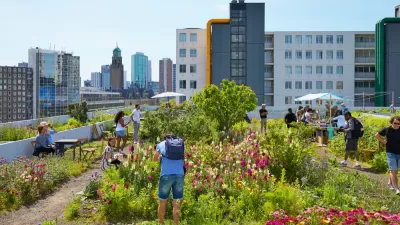The Netherlands gains the title of 'Safest Place to Cycle,' which is mainly due to their extensive infrastructure. But how did these high quality cycle paths come to exist?
After World War II, the nation had to rebuild which increased the number of jobs. As jobs increased, wages too increased which led to many being able to afford more expensive goods. In 1957, this led to many more cars on the streets. Infrastructure was torn down and demolished to make room for cars. New developments had huge roads for motorized traffic. Bicycling had decreased by large numbers.
In 1971, out of 3,300 lives that were lost, 400 were children under the age of 14. These extreme numbers got people on the streets protesting against cars. "Stop the Child Murder," were what posters said. The people wanted safer streets for children, pedestrians, and cyclists. The oil crisis in 1973 also helped promote cycling, and soon after these mass protests against cars had caused the city to think differently. New infrastructure was then built to accommodate these new ideas. Policies to encourage cycling were put in place to remind the people how beneficial cycling is.
This video, courtesy of 'Sustainable Cities Collective,' explains the history of cycling in the Netherlands and how issues changed policies over the years.
FULL STORY: Occupy Amsterdam? How Mass Protests of Cars Fostered Dutch Cycling Policy

Maui's Vacation Rental Debate Turns Ugly
Verbal attacks, misinformation campaigns and fistfights plague a high-stakes debate to convert thousands of vacation rentals into long-term housing.

Planetizen Federal Action Tracker
A weekly monitor of how Trump’s orders and actions are impacting planners and planning in America.

Chicago’s Ghost Rails
Just beneath the surface of the modern city lie the remnants of its expansive early 20th-century streetcar system.

Bend, Oregon Zoning Reforms Prioritize Small-Scale Housing
The city altered its zoning code to allow multi-family housing and eliminated parking mandates citywide.

Amtrak Cutting Jobs, Funding to High-Speed Rail
The agency plans to cut 10 percent of its workforce and has confirmed it will not fund new high-speed rail projects.

LA Denies Basic Services to Unhoused Residents
The city has repeatedly failed to respond to requests for trash pickup at encampment sites, and eliminated a program that provided mobile showers and toilets.
Urban Design for Planners 1: Software Tools
This six-course series explores essential urban design concepts using open source software and equips planners with the tools they need to participate fully in the urban design process.
Planning for Universal Design
Learn the tools for implementing Universal Design in planning regulations.
planning NEXT
Appalachian Highlands Housing Partners
Mpact (founded as Rail~Volution)
City of Camden Redevelopment Agency
City of Astoria
City of Portland
City of Laramie





























